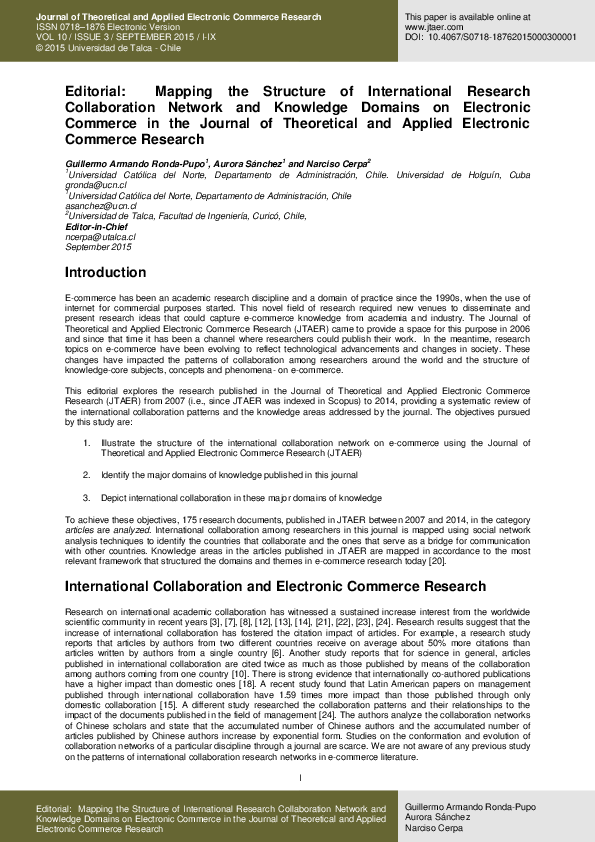千禧一代对餐厅体验进行电子口碑传播的动机
IF 4.6
3区 管理学
Q1 BUSINESS
Journal of Theoretical and Applied Electronic Commerce Research
Pub Date : 2024-04-27
DOI:10.3390/jtaer19020052
引用次数: 0
摘要
有关在线评论研究的文献越来越多,这为我们提供了有趣的研究机会,尤其是在年轻消费群体经常光顾的服务领域,如餐馆。在此背景下,本研究针对千禧一代消费者的餐饮电子口碑(EWOM)行为,从购买决策前的评论查询和购买后的评论撰写与发送两方面进行研究。基于理性行动理论,本研究追求双重目标。一方面,分析与外向性、社会利益和利他主义相关的动机对网络口碑发送行为的影响。另一方面,研究网络口碑咨询在这些关系中的调节作用。通过对来自厄瓜多尔的 341 名千禧一代进行抽样调查,构建了一个结构模型,该模型证实了两种类型的动机在网络口碑发送中的作用:外向型动机和社会利益型动机。研究结果还揭示了网络口碑咨询本身对外向性动机和利他主义动机影响的调节作用。本研究对餐厅管理的启示包括:根据千禧一代顾客的动机,改进为他们量身定制的数字传播策略的设计。本文章由计算机程序翻译,如有差异,请以英文原文为准。
Motivations toward Electronic Word-of-Mouth Sending Behavior Regarding Restaurant Experiences in the Millennial Generation
A growing body of the literature on the study of online reviews presents interesting research opportunities, especially in services highly frequented by young consumer segments, such as restaurants. In this context, the present study examines the restaurant electronic word-of-mouth (EWOM) behavior of Millennial consumers by addressing both review queries before the purchase decision and writing and sending after the purchase. Based on the theory of reasoned action, a double objective is pursued. On the one hand, the influence of motivations related to extroversion, social benefits, and altruism on EWOM sending behavior is analyzed. On the other hand, the moderating role of EWOM consultation in these relationships is studied. Using a sample of 341 Millennials from Ecuador, a structural model is constructed that confirms the contribution of two types of motivations in sending EWOM: those of extroversion and those of social benefits. The results also reveal the moderating role of EWOM consultation alone in the effects of extraversion and altruism motivations. Managerial implications for restaurants derived from this study include improvements in the design of digital communication strategies tailored to Millennial customers based on their motivations.
求助全文
通过发布文献求助,成功后即可免费获取论文全文。
去求助
来源期刊
CiteScore
9.50
自引率
3.60%
发文量
67
期刊介绍:
The Journal of Theoretical and Applied Electronic Commerce Research (JTAER) has been created to allow researchers, academicians and other professionals an agile and flexible channel of communication in which to share and debate new ideas and emerging technologies concerned with this rapidly evolving field. Business practices, social, cultural and legal concerns, personal privacy and security, communications technologies, mobile connectivity are among the important elements of electronic commerce and are becoming ever more relevant in everyday life. JTAER will assist in extending and improving the use of electronic commerce for the benefit of our society.

 求助内容:
求助内容: 应助结果提醒方式:
应助结果提醒方式:


